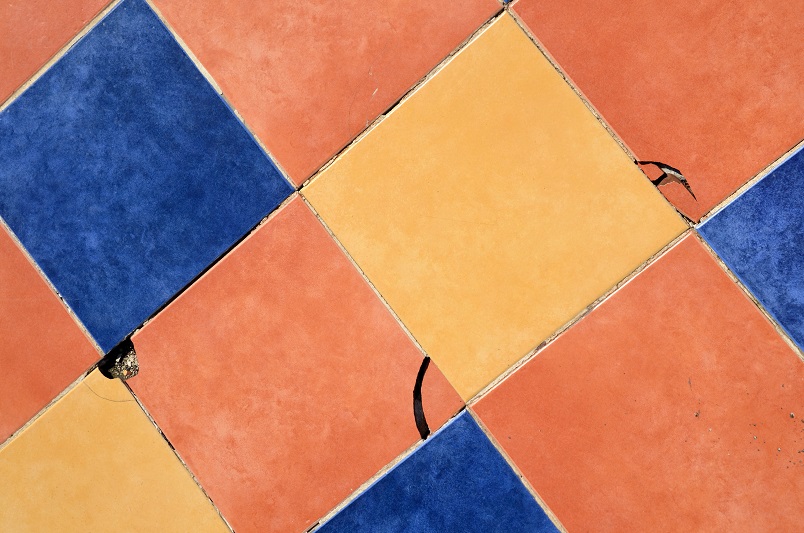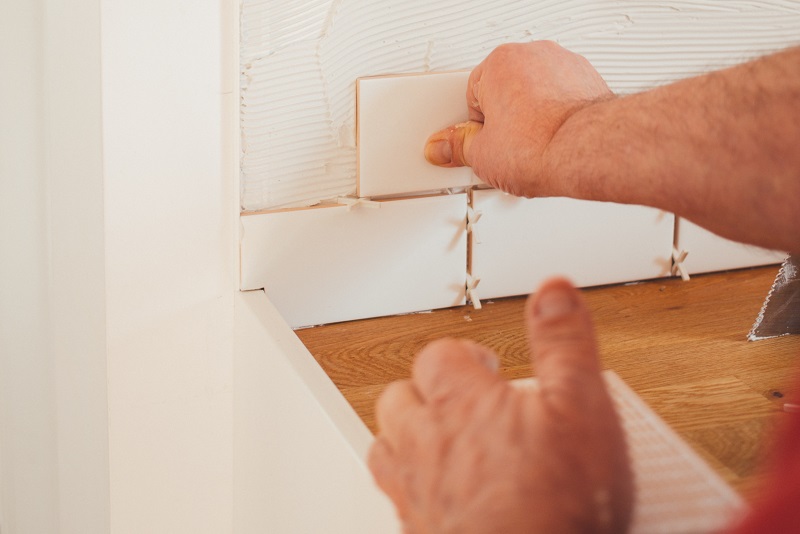When inspecting a potential new home or a new build, it’s easy to dream, all the while missing defects like floor and wall tiling mistakes that could potentially cost you thousands to rectify. It pays to be super vigilant during inspections, things like cracks and dodgy grout can easily go under the radar.
In this blog, we’ve outlined what you should look for when inspecting a property.
Grout Mistakes
Grout may seem like such a simple thing when it comes to wall and floor tiling, but when not done correctly, grouting can pose all sorts of problems and fixing grout mistakes can be costly and frustrating.
Grout flaking off
If you can see grout that is flaking or crumbling, it may have been prepared using too much water, and this means, the grout will not be doing its job correctly. Grout fills the joints between tiles; it’s also used to make a flat, attractive surface that is both waterproof and easy to clean. If it’s flaking or crumbling; however, it cannot achieve this purpose and requires re-grouting.
Grout missing between tiles
Not only does missing grout look unattractive, but it can also indicate possible underlying issues. Particularly in wet areas, missing grout means water can penetrate the floor or wall causing concealed damage.
Grout too thick
There is a method to mixing grout; the right consistency means the difference between achieving a durable finish, a crumbling finish or grout so thick that it doesn’t fill the gap or seal the tile gaps right to the bottom.

Damaged Tiles
Cracked wall or floor tile problems are often more than a cosmetic issue. As a building inspector, Brisbane homes that we see commonly suffer damage due to one of several common tile installation problems.
- A cracked subfloor
- Tiles installed directly onto plywood or timber floors
- Incorrectly spaced joints
- Protruding screw heads
- Moisture penetration
- Pressure changes
- Ageing property
These problems can be challenging to identify and easily missed but something a building inspector will check. Contact us, and we will check these areas during a pre-purchase inspection.
Drummy Tiles
Strange name but a valid concern. Drummy tiles are loose tiles that make a hollow sound when you tap them or stand on them. Drummy tiles are usually due to the improper application of adhesive and aren’t necessarily obvious. If the tile issue isn’t addressed, tiles can move, crack, lift or in some cases, explode.
How to fix grout mistakes and damaged tiles
The extent of the tiling issue usually determines what is required to rectify the problem. In some cases, it’s an easy and relatively cheap fix. On the other hand, if the tiling repair involves structural aspects of the home such as the subfloor, it will be more costly. To get a better idea of how much money and effort will be required, arrange a pre-purchase inspection.
For example, crumbling tile grout may simply need to be removed with a grout saw and the tiles regrouted. Major grout or tile cracks, however, could be due to settlement issues or improper tile installation. Major tile problems such as these are costly to repair, so it’s good to be aware of them before putting an offer on a property.

What to do next?
Floor and wall tiling mistakes are common in Brisbane suburbs and are often found during handover inspections of new builds, particularly with the popularity of DIY and novice tilers. Don’t just assume bad grouting or a tile crack will be an easy fix; there could be something you can’t see that will make it a much bigger job. The next thing you should do is find an inspector who is highly recommended in Brisbane building and pest inspections. At Safeguard Inspections we have 50+ five-star reviews on Google and growing.
Perhaps you have building inspection related questions you’d like answered? Check out our FAQ page.
Call Ben at Safeguard Inspections
to arrange a building inspection that’ll check every crack and crevice call 0410 534 472
